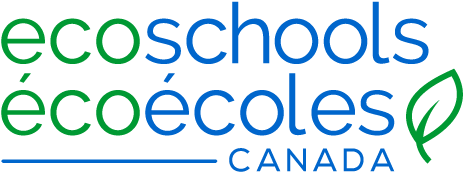One key call to action from the Truth and Reconciliation Commission is the need for change in the education system. As Murray Sinclair, Chair of the Commission, notes: “It was the educational system that has contributed to the problem in this country, and it’s the educational system which we believe is going to help us get away from this.”
We were honoured to have Nick Bertrand and Jennifer Farrell-Cordon from the Ontario Ministry of Education present on the links between the Truth and Reconciliation Commission and the Ontario EcoSchools program at the January 2016 School Board Conference.
Drawing from their experience with the Ministry of Education, and unique backgrounds – Nick as a First Nations, Métis and Inuit instructional program leader, and Jennifer as an expert in curriculum-based strategy – their seminar asked the question: “Education being foundational in the reconciliation process, how can the EcoSchools program play an active role toward reconciliation in the province of Ontario?”
The presentation began by explaining what reconciliation means via the powerful words of Sinclair and referenced clauses 62 and 63 in the Commission that directly point to education.
This larger context provided a poignant background to discuss how the Ontario EcoSchools program can integrate an indigenous lens across all six sections. Jennifer suggested that teachers review the Ministry of Educations’ “Scope and Sequence” elementary and secondary resources which align a First Nations, Métis and Inuit focus with Ontario curriculum streams. “The innovation really comes through in the lesson examples,” Jen explained.
Both Nick and Jen gave examples of how this lens has been adapted in classrooms across the province.
Nick spoke of one high school cosmetology class that used a First Nations, Métis and Inuit focus when exploring the cultural roots of braiding hair. The class invited in an Anishnabe speaker to explain the use of sweetgrass in the practice of braiding and the other four traditional medicines in the Mississauga area.
Jennifer then noted how grade 8 water lessons could be connected to a social justice focus. For instance, although many EcoTeams hold bottled-water-free campaigns, many indigenous communities don’t have a safe source of drinking water so rely on bottled water. This perspective brings a whole new layer to discussions around community access to natural resources.
Seminar participants were also keen to bring their unique perspectives to the conversation. One board representative explained how Ontario EcoSchools’ School Ground Greening section could integrate a traditional lens: from planting medicinal and Three Sisters gardens (beans, corn, and squash), to specific acknowledgement of the spiritual landscape and territory on which the gardens are built.
Another example was a world religions class in Thunder Bay that focused on indigenous spirituality and then attended a local sweat lodge. Recognition for their field trip fell within the Ontario EcoSchools Curriculum section.
Still another example was from Grand Erie DSB, which borders on Six Nations territory, and has a strong aboriginal lead at the school board level. The board invited elders to present workshops on water and conservation at their annual EcoConference – an excellent example of what can be recognized in Ontario EcoSchools’ Teamwork and Leadership or Environmental Stewardship sections.
To wrap up the dynamic discussion, Nick and Jen provided some overarching suggestions on how to respectfully integrate a First Nations, Métis and Inuit lens into the classroom and Ontario EcoSchool program activities:
- Meet, connect, and develop relationships with your local First Nations, Métis and Inuit communities.
- School boards in Ontario all have an Aboriginal Education lead, so connect with them from the earliest stages of your EcoSchools program for ideas and direction.
- For a truly rich and reciprocal relationship, don’t just invite Elders and community workers into the school, but visit them in their communities.
- Contact Ontario Federation of Indigenous Friendship Centres for further resources and connections

Recent Comments